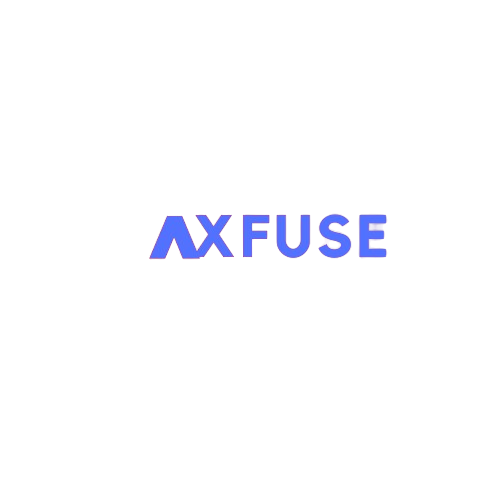Canada is one of the most sought-after destinations for international students, offering world-class education, diverse cultures, and abundant opportunities for professional and personal growth. To study in Canada as an international student, obtaining a Canadian Study Permit is essential. This document, issued by Immigration, Refugees and Citizenship Canada (IRCC), allows you to study at a designated learning institution (DLI) in Canada and, in many cases, provides opportunities to work while studying. Understanding the process and requirements for a study permit can help make your journey to studying in Canada a smooth one.
This guide provides an in-depth look at each step involved in securing a Canadian Study Permit, covering eligibility criteria, application procedures, document requirements, and tips to ensure a successful application.
What is a Canadian Study Permit?
A Canadian Study Permit is an official document issued by the IRCC that allows foreign nationals to study at a designated learning institution in Canada. It is a critical component of the Canadian immigration system for international students and acts as a form of temporary residency for the duration of the program. The study permit is not a visa; in most cases, you’ll also need a visitor visa or an Electronic Travel Authorization (eTA) to enter Canada.
Your study permit outlines your conditions for staying in Canada, including where you can study and work, and it typically covers the length of your academic program plus an additional 90 days to allow you to prepare for departure or apply to extend your stay.
Why Study in Canada?
Canada is a popular destination for international students due to its high-quality education system, affordable tuition fees, and multicultural environment. Canadian institutions offer a wide range of academic programs in various fields, from engineering to business, health sciences, and the arts. Studying in Canada also provides opportunities for post-graduation work and pathways to permanent residency, making it an attractive option for students looking to build a future there.
Some additional advantages include:
- Access to world-renowned universities and colleges.
- Opportunities to gain work experience while studying.
- A safe, inclusive environment that values diversity.
- Eligibility for post-graduation work permits, which can lead to permanent residency.
Eligibility Requirements for a Study Permit
To be eligible for a Canadian study permit, you must meet specific criteria set by IRCC:
- Acceptance at a DLI: You must have an acceptance letter from a designated learning institution in Canada.
- Proof of Sufficient Funds: You need to demonstrate that you have enough financial resources to cover tuition fees, living expenses, and return transportation.
- Clean Criminal Record: Applicants must have no criminal record and may need to provide a police clearance certificate.
- Medical Examination: Some applicants are required to undergo a medical examination to ensure they are in good health.
- Intention to Leave Canada: You must show that you will leave Canada at the end of your study period, even if you intend to apply for work or immigration options later.
Meeting these requirements is essential to move forward with your study permit application.
Choosing a Designated Learning Institution (DLI)
A Designated Learning Institution (DLI) is a school approved by the provincial or territorial government to host international students. It’s important to confirm that your chosen institution is a DLI, as only these schools are eligible to accept students with a Canadian study permit.
- Find the DLI Number: When applying for your study permit, you’ll need the DLI number for your school, which can be found on the DLI list on the IRCC website.
- Confirm Program Eligibility: Some DLIs also provide eligibility for post-graduation work permits, which can be a valuable option if you plan to work in Canada after graduation.
Choosing a DLI and program that aligns with your educational and career goals is a critical first step in the application process.
Gathering Required Documents
Having the necessary documents in order is essential for a successful study permit application. Here’s a list of commonly required documents:
- Acceptance Letter: A letter of acceptance from a DLI in Canada.
- Proof of Identity: A valid passport and recent passport-sized photographs.
- Proof of Financial Support: Bank statements, proof of scholarships, or a letter from a financial sponsor.
- Letter of Explanation: This letter explains your reasons for studying in Canada and confirms your understanding of the study permit’s terms.
- Police Clearance Certificate: This is required for applicants with a criminal record.
- Medical Examination Certificate (if required): Results of a medical exam for applicants from certain countries.
Additional documents may be requested depending on your country of residence and personal circumstances, so it’s important to check specific requirements on the IRCC website.
Steps to Apply for a Canadian Study Permit
Follow these steps to apply for your Canadian study permit:
Step 1: Obtain an Acceptance Letter from a DLI
You must have an acceptance letter from a designated learning institution before you can apply for a study permit.
Step 2: Gather Required Documents
Collect all required documents, including proof of identity, financial support, and a letter of explanation.
Step 3: Apply Online or by Paper
The application can be completed online through the IRCC website. Paper applications are also accepted, though online applications tend to be processed faster.
Step 4: Pay the Application Fee
The study permit application fee is CAD 150, which must be paid online.
Step 5: Submit Biometrics
After submitting your application, you may be required to provide biometric information (fingerprints and photos) at a local visa application center.
Step 6: Attend an Interview (if required)
In some cases, an interview with a visa officer may be required to assess your application.
Step 7: Wait for a Decision
Once submitted, your application will be reviewed by IRCC. Processing times vary by country, so check current timelines on the IRCC website.
Once approved, you will receive a Port of Entry (POE) letter of introduction and, if required, a visa to enter Canada.
Financial Proof Requirements
IRCC requires international students to prove that they have sufficient funds to cover tuition, living expenses, and return travel. Generally, you must show:
- Tuition for the First Year: The amount varies based on the program and institution.
- Living Expenses: Approximately CAD 10,000 per year for students, with additional funds required for family members.
- Return Transportation: Funds to cover a round-trip ticket.
Acceptable proof includes bank statements, proof of a student loan, or evidence of a scholarship or financial sponsorship.
Biometrics and Medical Examinations
Biometrics (fingerprints and photos) are required for most applicants. After applying, you’ll receive a biometrics instruction letter, which you must bring to an authorized biometrics collection location.
Medical Examination: Some applicants may need a medical exam, depending on the country of residence. The IRCC will provide a list of approved doctors if a medical exam is required.
Both steps help ensure that applicants meet health and security standards for entering Canada.
Study Permit Processing Times
Study permit processing times vary by country, typically ranging from a few weeks to several months. It’s advisable to apply as early as possible, ideally 6 to 12 months before your intended start date, to avoid delays. Processing times are updated regularly on the IRCC website.
Working While Studying in Canada
One of the advantages of studying in Canada is the ability to work part-time on or off campus while studying. Key details include:
- On-Campus Work: You can work on campus without a work permit if you are a full-time student with a valid study permit.
- Off-Campus Work: Full-time students can work up to 20 hours per week off-campus during regular terms and full-time during scheduled breaks.
- Co-op and Internship Programs: If your program includes a work component, you may qualify for a co-op work permit.
These work opportunities provide valuable experience and can help offset living expenses.
Extending or Renewing Your Study Permit
If you need more time to complete your studies, you can apply to extend your study permit:
- When to Apply: Submit your extension application at least 30 days before your current permit expires.
- Application Process: Extensions can be done online through the IRCC website.
- Post-Graduation Options: After graduation, you may be eligible for a Post-Graduation Work Permit (PGWP), which allows you to work in Canada for up to three years.
Applying for an extension before your permit expires ensures that you maintain legal status in Canada.
Tips for a Successful Study Permit Application
- Apply Early: Start your application at least six months before your intended program start date.
- Be Thorough: Ensure that all documents are complete and meet IRCC’s requirements.
- Write a Strong Letter of Explanation: Clearly state why you wish to study in Canada and confirm your understanding of the study permit conditions.
- Ensure Financial Readiness: Demonstrate clear evidence of financial support to cover your tuition, living expenses, and return travel. Providing solid proof of financial stability reassures IRCC of your preparedness to study in Canada.
- Check for Accurate Information: Double-check all information on your application and documents to avoid delays or rejections due to errors.
- Follow Up on Biometrics and Medical Exams Promptly: Schedule and complete any required biometrics or medical exams as soon as you receive instructions, as these are essential steps in the approval process.
- Stay Updated on Processing Times: Regularly check IRCC’s processing times to manage your expectations and, if needed, communicate with your DLI about potential delays.
- Seek Help if Needed: Consider consulting an immigration advisor or counselor if you have questions about the application process, particularly if you’re applying for the first time.
Following these tips can significantly improve the chances of a smooth and successful study permit application process.
Conclusion
Securing a Canadian study permit is a critical step for any international student planning to study in Canada. The application process involves multiple steps, from gathering documents and proving financial sufficiency to completing biometrics and potentially a medical exam. Choosing a Designated Learning Institution, understanding eligibility requirements, and following the correct procedures can streamline your path to studying in Canada.
By preparing early, paying close attention to detail, and following IRCC guidelines, you can successfully navigate the application process and start your journey in Canada with confidence. From world-class education and cultural diversity to the opportunity to work and build a future in Canada, the benefits of studying in Canada make the effort well worth it.

